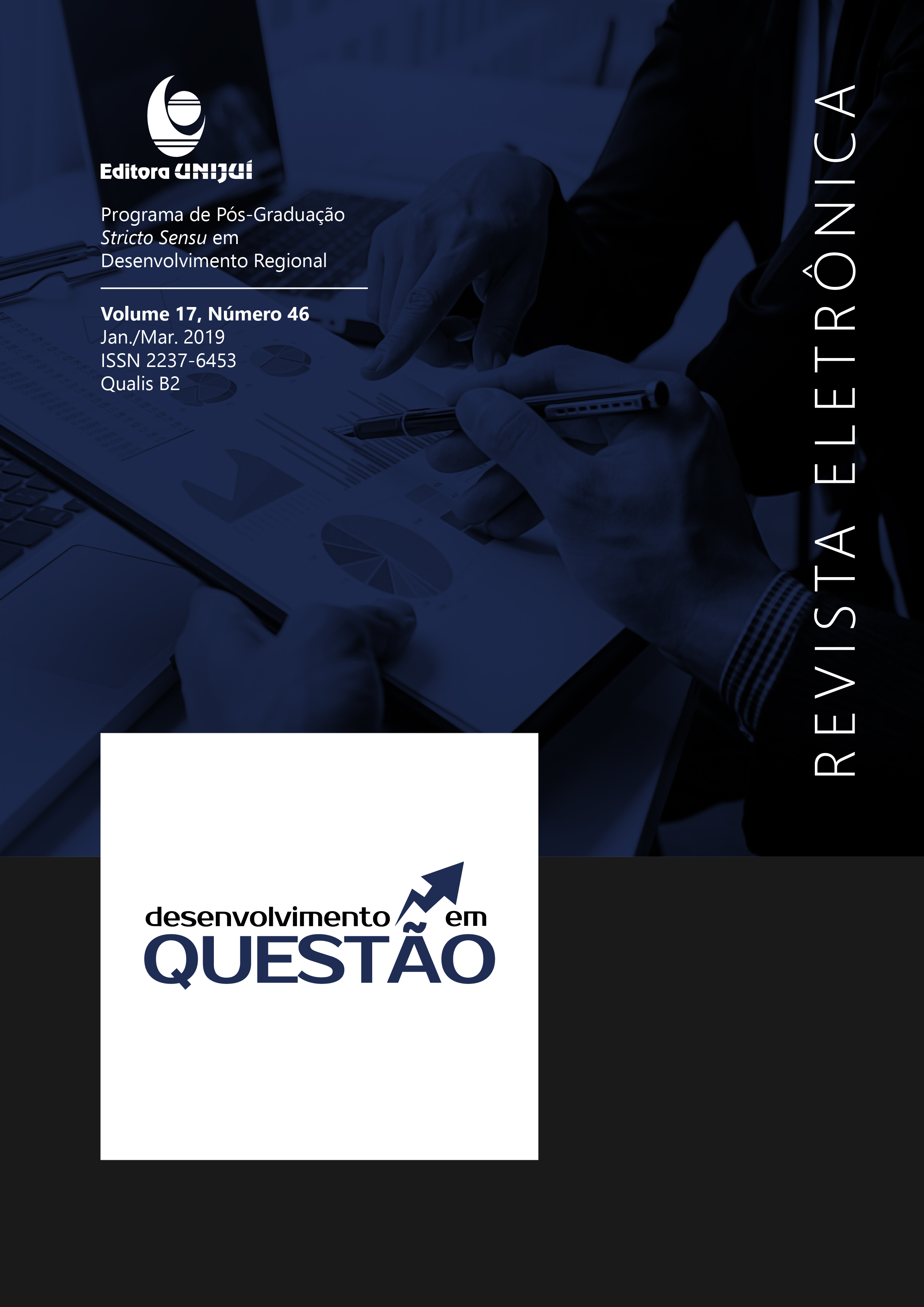Visões Empreendedoras: um estudo comparativo entre especialistas das cinco maiores economias em relação aos especialistas de países membros do Mercosul
DOI:
https://doi.org/10.21527/2237-6453.2019.46.56-73Palavras-chave:
Empreendedorismo, Programas Governamentais, Programas governamentais, Propriedade Intelectual, Propriedade intelectual, Mulher Empreendedora, Mulher empreendedoraResumo
Este artigo tem como propósito compreender como os cinco países com maior PIB (EUA, China, Japão, Alemanha e Reino Unido) e cinco países membros do MERCOSUL (Brasil, Argentina, Colômbia, Chile e Uruguai) percebem o empreendedorismo. Desta forma o objetivo deste trabalho busca identificar quais dimensões demonstram a existência de opiniões iguais e/ou divergentes relacionadas ao empreendedorismo entre especialistas que participaram da edição GEM 2012. Quanto ao método configura-se como quantitativo de caráter exploratório. A fonte dos dados é secundária oriundas da pesquisa GEM 2012 e disponibilizadas por meio do site http://www.gemconsortium.org/. Para tratamento destes dados utilizou-se estatística descritiva e multivariada. Como resultado descobriu-se nove dimensões que atenderam aos pressupostos, sendo discutidos neste trabalho apenas três: Direito de Propriedade Intelectual; Programas Governamentais e Mulher Empreendedora. Desta discussão constatou-se que embora a cultura social dos países com maior PIB seja ligeiramente mais agressiva que a cultura social existente entre os países membros do MERCOSUL, as percepções de seus especialistas confirmam a visão de pesquisadores ao afirmarem que o empreendedor enxerga novos mercados em ambientes caóticos e cercados de incerteza, cujo risco é o critério para a busca de oportunidades.
Downloads
Publicado
Como Citar
Edição
Seção
Licença
Ao publicar na Revista Desenvolvimento em Questão, os autores concordam com os seguintes termos:
Os trabalhos seguem a licença Creative Commons Atribuição 4.0 Internacional (CC BY 4.0), que permite:
Compartilhar — copiar e redistribuir o material em qualquer meio ou formato;
Adaptar — remixar, transformar e criar a partir do material para qualquer fim, inclusive comercial.
Essas permissões são irrevogáveis, desde que respeitados os seguintes termos:
Atribuição — Atribuição — os autores devem ser devidamente creditados, com link para a licença e indicação de eventuais alterações realizadas.
Sem restrições adicionais — não podem ser aplicadas condições legais ou tecnológicas que restrinjam o uso permitido pela licença.
Avisos:
A licença não se aplica a elementos em domínio público ou cobertos por exceções legais.
A licença não garante todos os direitos necessários para usos específicos (ex.: direitos de imagem, privacidade ou morais).
A revista não se responsabiliza pelas opiniões expressas nos artigos, que são de exclusiva responsabilidade dos autores. O Editor, com o apoio do Comitê Editorial, reserva-se o direito de sugerir ou solicitar modificações quando necessário.
Somente serão aceitos artigos científicos originais, com resultados de pesquisas de interesse que não tenham sido publicados nem submetidos simultaneamente a outro periódico com o mesmo objetivo.
A menção a marcas comerciais ou produtos específicos destina-se apenas à identificação, sem qualquer vínculo promocional por parte dos autores ou da revista.
Contrato de Licença (para artigos publicados a partir de 2025): Os autores mantêm os direitos autorais sobre seu artigo, e concedem a Revista Desenvolvimento em Questão o direito de primeira publicação.











